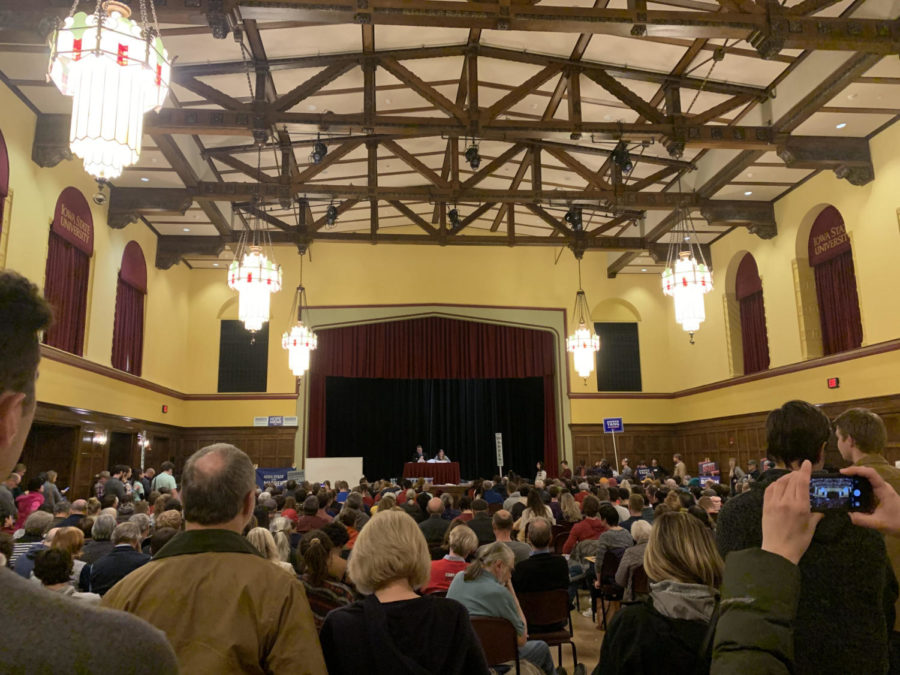Johnson: Why we need ranked choice voting
Columnist Zachary Johnson argues that there are upsides of caucusing. He writes that the ability to write in a second choice and have conversations with people who disagree with you are pros of caucusing.
February 4, 2020
The absolute disarray surrounding the Iowa caucus is indicative of the much-needed change in how we select our nominees.
Don’t get me wrong. I loved my first experience caucusing. Having the opportunity to be some of the first people to put forth meaningful feedback on these candidates was an incredible experience to have for the first time on Monday. I went from having never met a Klobuchar supporter to attempting them to bring them over to my side and seeing her get two delegates from my precinct.
While there is a lot of value in this process that I was able to experience I understand, of course, that I am uniquely in a position to go to these sorts of things.
Many people have a hard time putting aside the time to vote let alone the long and uncertain amount of time that it takes to go to these caucuses. This is a difficult barrier to entry to overcome for many who might not have extremely strong preferences but whose preferences should be taken into account regardless.
It is no secret that general elections are far more accessible for people and, being the most voted in elections in the country. No matter how impressive the caucuses turnout is, it will pale in comparison to an election where a ballot is cast and the voter can simply leave afterwards.
If we look at the results of the 2016 Democratic caucus, there were simply a few coin flips between Clinton and Sanders taking the crown in that contest. The 2016 general election is characterized by the disdain between the two candidates and how unpopular they were with the general public. Even Democrats disliked Clinton at an incredible rate throughout the race and while you can point to many things as the cause of this, I think I can conjecture that if more people had been a part of the caucus process, it would have better represented the Iowa voting public and (though this is contentious) would better represent the Democratic electorate generally.
I would argue the two big appeals of caucusing are the ability to elect to support your second choice and the ability to have conversations with those who disagree with you. Ranked choice voting keeps the former attribute while bringing with it ease and effectiveness of quality control that makes for a more representative for more Iowans and more Americans.







